The Association of Clinical Research Professionals
Competency Domains for Clinical Research Professionals
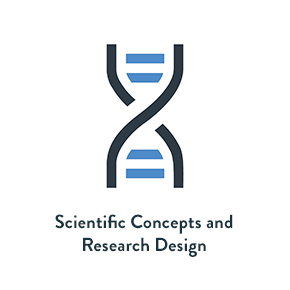
Scientific Concepts and Research Design
Encompasses knowledge of scientific concepts related to the design and analysis of clinical trials.
-
Demonstrate knowledge of pathophysiology, pharmacology, and toxicology as related to medicines discovery and development
-
Identify clinically important questions that are potentially testable clinical research hypotheses, through review of the professional literature
-
Explain the elements (statistical, epidemiological, and operational) of clinical and translational study design
-
Design a clinical trial
-
Critically analyze study results with an understanding of therapeutic and comparative effectiveness

Ethical and Participant Safety Considerations
Encompasses care of patients, aspects of human subject protection, and safety in the conduct of a clinical trial.
-
Compare and contrast clinical care and clinical management of research participants
-
Define the concepts of “clinical equipoise” and “therapeutic misconception” as related to the conduct of a clinical trial
-
Compare the requirements for human subject protections and privacy under different national and international regulations and ensure their implementation throughout all phases of a clinical study
-
Explain the evolution of the requirement for informed consent from research participants and the principles and content of the key documents ensuring the protection of human participants in clinical research
-
Describe the ethical issues involved when dealing with vulnerable populations and the need for additional safeguards
-
Evaluate and apply an understanding of the past and current ethical issues, cultural variations, and commercial aspects to the medicines development process
-
Explain how inclusion and exclusion criteria are included in a clinical protocol to assure human subject protection
-
Summarize the principles and methods of distributing and balancing risk and benefit through selection and management of clinical trial subjects
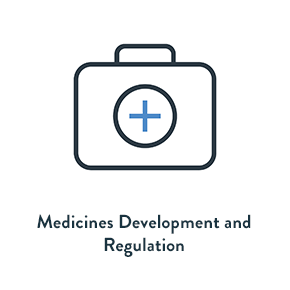
Investigational Products Development and Regulation
Encompasses knowledge of how drugs, devices, and biologicals are developed and regulated.
-
Discuss the historical events that precipitated the development of governmental regulatory processes for drugs, devices, and biologics
-
Describe the roles and responsibilities of the various institutions participating in the medicines development process
-
Explain the medicines development process and the activities that integrate commercial realities into the life cycle management of medical products
-
Summarize the legislative and regulatory framework that supports the development and registration of medicines, devices, and biologics and ensures their safety, efficacy, and quality
-
Describe the specific processes and phases that must be followed in order for the regulatory authority to approve the marketing authorization for a medical product
-
Describe the safety reporting requirements of regulatory agencies both pre- and post-approval
-
Appraise the issues generated and the effects of global expansion on the approval and regulation of medical products
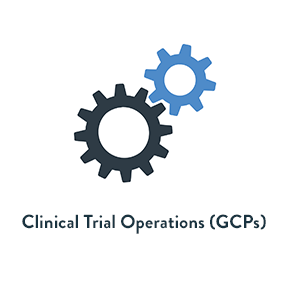
Clinical Trial Operations (GCPs)
Encompasses study management and GCP compliance; safety management (adverse event identification and reporting, postmarket surveillance, and pharmacovigilance), and handling of investigational product.
-
Evaluate the conduct and management of clinical trials within the context of a Clinical Development Plan
-
Describe the roles and responsibilities of the clinical investigation team as defined by GCP guidelines
-
Evaluate the design conduct and documentation of clinical trials as required for compliance with GCP guidelines
-
Compare and contrast the regulations and guidelines of global regulatory bodies relating to the conduct of clinical trials
-
Describe appropriate control, storage, and dispensing of investigational products
-
Differentiate the types of adverse events (AEs) that occur during clinical trials, understand the identification process for AEs, and describe the reporting requirements to institutional review boards/independent ethics committees (IRBs/IECs), sponsors, and regulatory authorities
-
Describe how global regulations and guidelines assure human subject protection and privacy during the conduct of clinical trials
-
Describe the reporting requirements of global regulatory bodies relating to clinical trial conduct
-
Describe the role and process for monitoring of the study
-
Describe the roles and purpose of clinical trial audits
-
Describe the safety reporting requirements of regulatory agencies both pre- and post-approval
-
Describe the various methods by which safety issues are identified and managed during the development and postmarketing phases of clinical research

Study and Site Management
Encompasses content required at the site level to run a study (financial and personnel aspects). Includes site and study operations (not encompassing regulatory/GCPs).
-
Describe the methods utilized to determine whether or not to sponsor, supervise, or participate in a clinical trial
-
Develop and manage the financial, timeline, and cross-disciplinary personnel resources necessary to conduct a clinical or translational research study
-
Apply management concepts and effective training methods to manage risk and improve quality in the conduct of a clinical research study
-
Utilize elements of project management related to organization of the study site to manage patient recruitment, complete procedures, and track progress
-
Identify the legal responsibilities, issues, liabilities, and accountabilities that are involved in the conduct of a clinical trial
-
Identify and explain the specific procedural, documentation, and oversight requirements of PIs, sponsors, contract research organizations (CROs), and regulatory authorities related to the conduct of a clinical trial
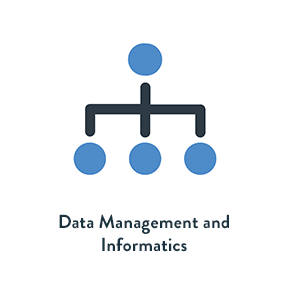
Data Management and Informatics
Encompasses how data are acquired and managed during a clinical trial, including source data, data entry, queries, quality control, and correction and the concept of a locked database.
-
Describe the role that biostatistics and informatics serve in biomedical and public health research
-
Describe the typical flow of data throughout a clinical trial
-
Summarize the process of electronic data capture and the importance of information technology in data collection, capture, and management
-
Describe the ICH GCP requirements for data correction and queries
-
Describe the significance of data quality assurance systems and how standard operating procedures are used to guide these processes

Leadership and Professionalism
Encompasses the principles and practice of leadership and professionalism in clinical research
-
Describe the principles and practices of leadership, management, and mentorship, and apply them within the working environment
-
Identify and implement procedures for the prevention or management of the ethical and professional conflicts that are associated with the conduct of clinical research
-
Identify and apply the professional guidelines and codes of ethics that apply to the conduct of clinical research
-
Describe the impact of regional diversity and demonstrate cultural competency in clinical study design and conduct
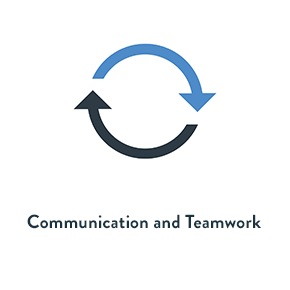
Communication and Teamwork
Encompasses all elements of communication within the site and between the site and sponsor, CRO, and regulators. Understanding of teamwork skills necessary for conducting a clinical trial.
-
Discuss the relationship and appropriate communication between sponsor, CRO, and clinical research site
-
Describe the component parts of a traditional scientific publication
-
Effectively communicate the content and relevance of clinical research findings to colleagues, advocacy groups, and the nonscientist community
-
Describe methods necessary to work effectively with multidisciplinary teams